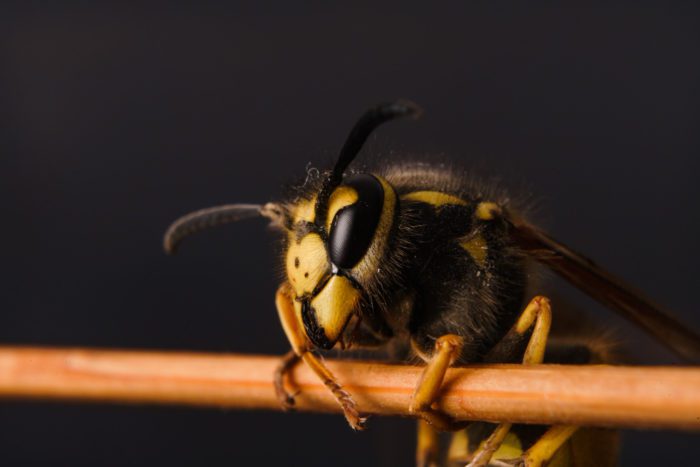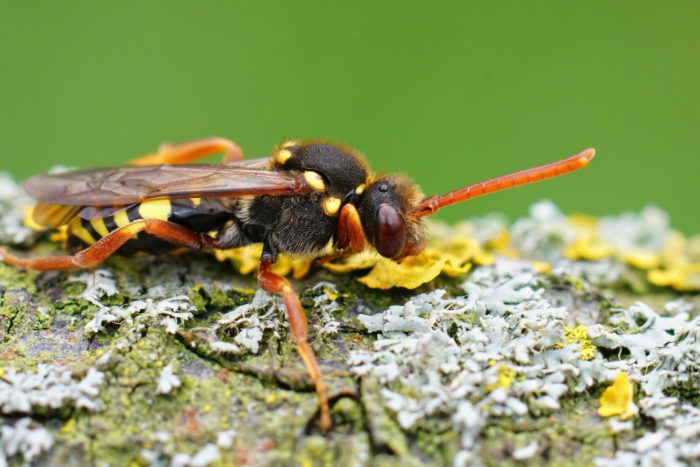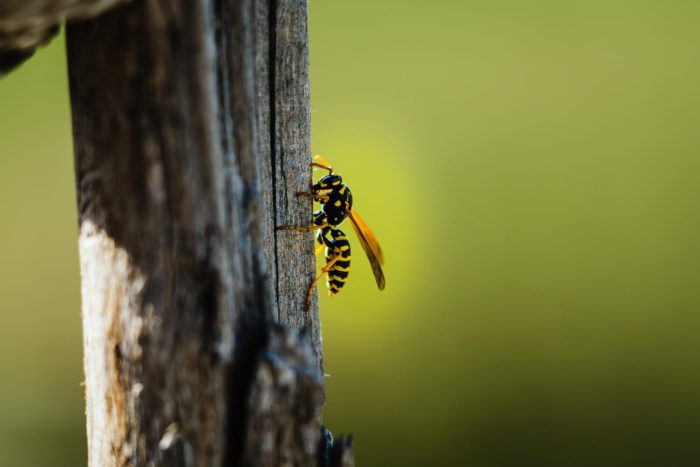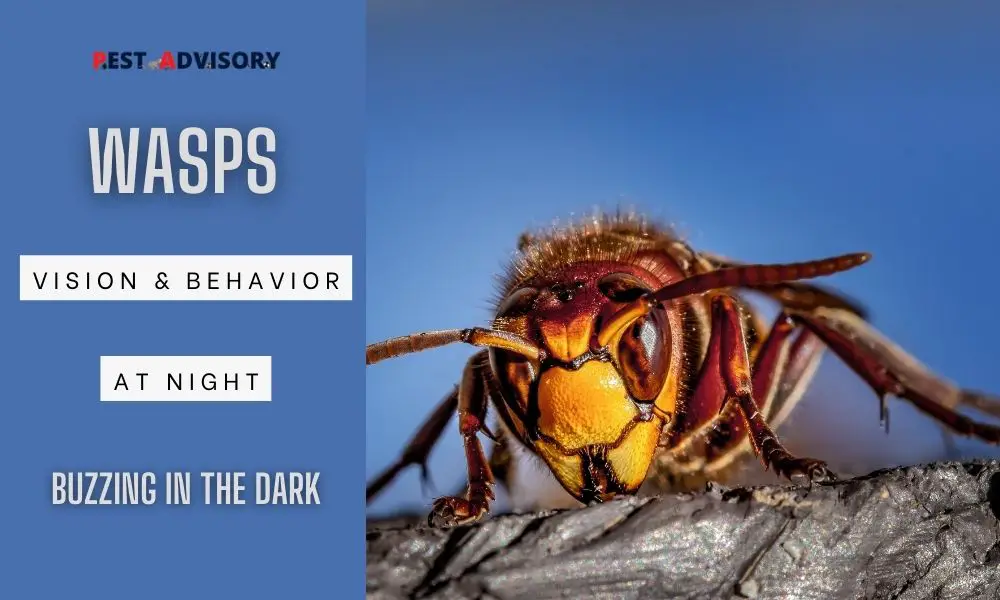As the sun sets and darkness falls, most of us retreat indoors to seek comfort and safety. But for some creatures, the cover of night offers a new realm of opportunity.
Among these creatures are wasps, the buzzing insects with a notorious reputation for their painful stings.
While many people fear wasps, few are aware of their extraordinary abilities to navigate and hunt in the dark.
Indeed, these nocturnal warriors are far more than just pests that come out to play after hours.
In this article, we delve into the fascinating world of wasps’ vision and behavior at night, uncovering the secrets of how they see, hunt, and communicate in the darkness.
So, let’s get ready to explore the thrilling realm of buzzing in the dark!
Do Wasps have Night Vision?
Their visual system, on the other hand, differs from that of humans, and they rely on a type of photoreceptor known as “rhabdomeric photoreceptors.” Wasps can sight in the dark because their photoreceptors are particularly sensitive to low light levels. Wasps may have a unique visual system that helps them to see and move in low-light situations.

How Does Wasps Night Vision Work
Wasps’ night vision works by utilizing their rhabdomeric photoreceptors, which are highly sensitive to light and can detect very low levels of illumination.
Within the wasp’s eye, these photoreceptors are organized in a specific pattern, permitting them to gather light from many different angles and directions.
Furthermore, some wasp species have specialized modifications in their eyes, such as a greater number of photoreceptors, which improves their capacity to see in the dark.
Overall, wasps’ night vision works by relying on a highly specialized visual system that is optimized for low-light conditions.
Wasps’ Behavior at Night
Wasps exhibit a range of behaviors at night, which are different from their daytime behaviors.
Nocturnal wasps are known to be active at night and may engage in a variety of activities such as foraging, hunting, and mating.
They also use their sense of smell and vision to navigate and locate food sources, mates, and potential predators. Nocturnal wasps are busy at night and can be involved in a number of activities including scavenging, hunting, and breeding.
Some wasp species may be more active at various times of the night, and their behavior may be impacted by factors such as food supply, temperature, and humidity.
Overall, wasps’ behavior at night seems to be geared toward maximizing their chances of survival and reproduction in the challenging environment of darkness.

Frequently Asked Questions
Can wasps see at night?
Wasps do not see well in the dark, and their eyes are less effective during low-light conditions.
Most wasp species prefer to remain in their nests at night, where they may tend to their larvae and repair the nest.
Some nocturnal wasp species are adapted to low-light environments and may remain active during the night, but even their eyesight is not well-suited for seeing in the dark.
Therefore, it is safe to say that wasps cannot see well at night.
Are wasps active at night?
Wasps are generally not very active at night. The time when they are most active is when the sun is shining bright and the weather is clear. In contrast, wasps are less active when the weather is cold.
Wasps do not normally travel at night and typically remain confined to their nests, where they may perform activities such as larvae care and nest restoration.
Will wasps sting at night?
Wasps are capable of stinging at night, although their likelihood to sting may depend on various factors such as the species of wasp, their behavior, and the context in which the interaction with humans occurs.
Some night wasp species can be more threatening compared to their daytime parallels, so they can cause striking pain if attacked or disturbed.

Conclusion
The world of wasps’ vision and behavior at night is a fascinating and intricate one.
From their specialized photoreceptors to their unique behavioral patterns, wasps have evolved remarkable adaptations that enable them to thrive in the darkness.
By appreciating and understanding these creatures, we can learn to coexist with them in a respectful and sustainable manner, recognizing wasps’ vital role in our ecosystem like the role of wasps as pollinators and as predators of insects like mosquitoes.
So whenever you come across a wasp buzzing in darkness, wonder at its incredible talents and the network of life it is a component of.
